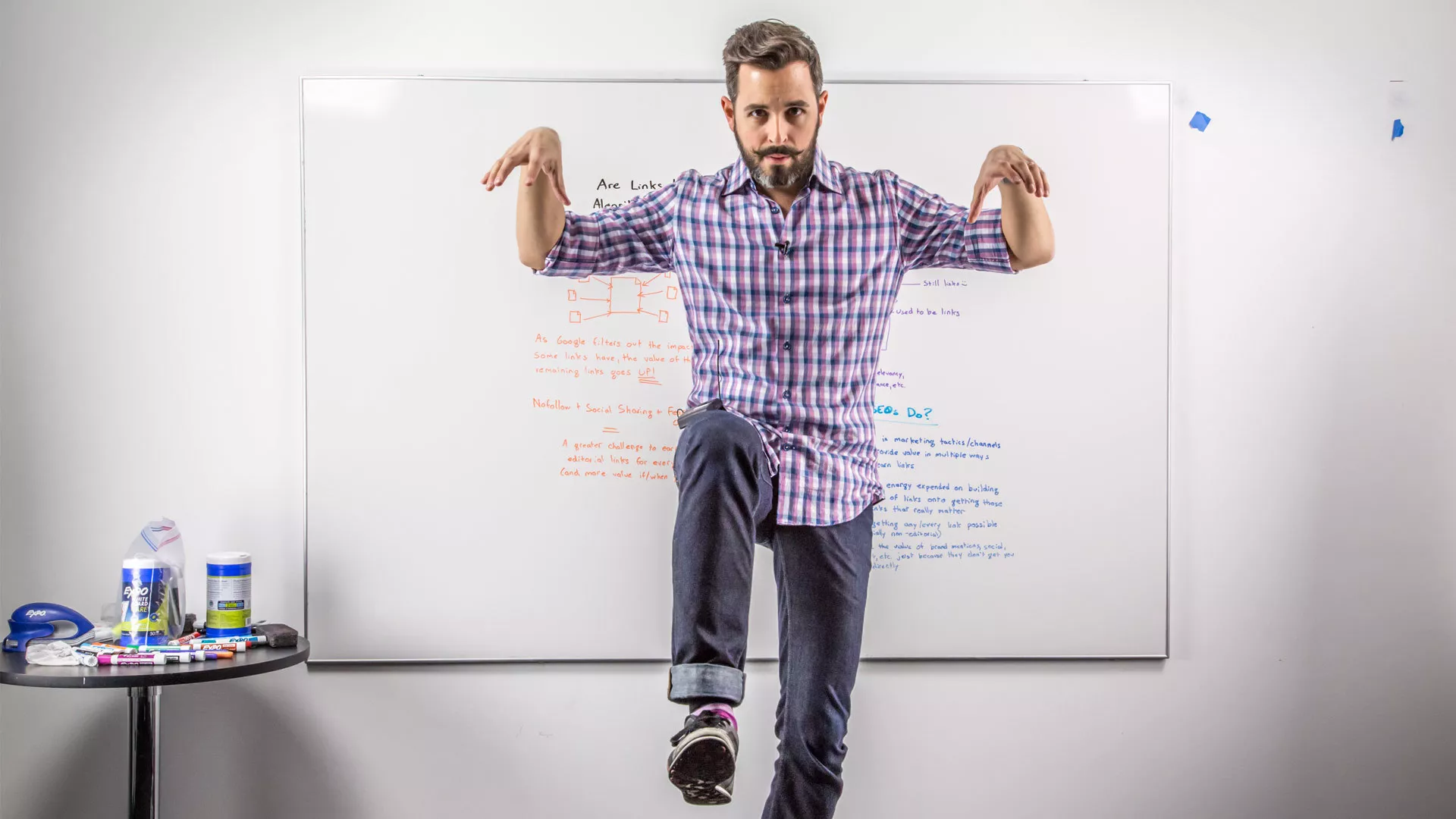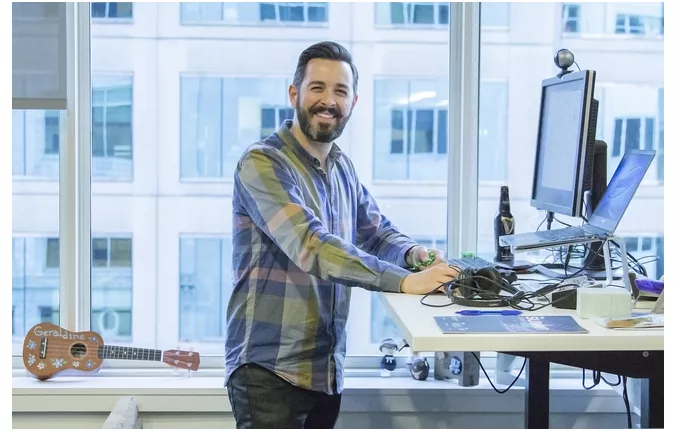Ex-CEO and now Wizard of Moz Rand Fishkin shared with us a story about the future of SEO, advanced promotion schemes and SEO mistakes clients can make.
I wouldn't quite phrase it that way – traditional SEO is still important. If your site can't be crawled, indexed, and understood properly by the engines, there's little chance you can perform well in the rankings. That said, things that build a company or website's brand – press, advertising, awareness, content, authority, etc – have a greater degree of impact on SEO than ever before because the search engines have expanded the signals they look at and the web's link graph (thanks, in part to the proliferation of social media) is more The branding elements I'd focus most on are:
- Trust – want to build a website that people find reliable, authoritative, and worthy of returning to and sharing.
- Reach – amplifying the number of people who are touched by your content promotion efforts (both organic and paid) can have a dramatic, positive impact on your brand and your SEO.
- Recall – when people visit your content, you want them to quickly build a memorable association of their topics of interest with your site.
As you improve these, you'll notice more people returning to your site, sharing your content, following your work, and linking to you. Those can all help directly and indirectly with SEO.
– Social media is a great place to start sharing because it's a very low investment cost with a great ability to reach people. If what you're building/sharing/publishing isn't resonating with an audience on social, you can learn that quickly and tune it until you find that sweet spot.
– Many customers of SEO in the US still do rely on ranking positions as a metric. For a while, the industry was successfully pushing folks to think about traffic from search engines and how that traffic performed, but with Google removing keyword data, we've seen a return to the importance of rankings. I still believe it's important to look at search traffic holistically, but I understand the desire to use ranking positions as a metric – I do it myself, too. 
– Well, I don't work directly with clients (Moz is exclusively software), but I can tell you some of the most common issues I've seen arise:
- Businesses not wanting to invest in making changes to their websites and expecting results (crazy!)
- Businesses giving up on content marketing a few months into the process – it often takes years of investment to see great results
- Companies targeting only the same few keywords, rather than expanding their keyword opportunity base
- Businesses that can't figure out multi-touch web analytics tracking (making it very hard to measure the results of any marketing campaigns)
- Businesses that don't have a CMS, and thus, content changes to things like title elements, meta data, URL structures, links, etc all require manual editing (or FTP'ing pages up and down from a server). Given the number of wonderful, free CMS programs available, this one always shocks me.
– It will make some of the key tracking and measurement functions more difficult for companies. Sadly, the true violators of privacy – governments, criminals, and hackers – won't be deterred much by these privacy steps. It hurts the commercial uses of data, but not the really bad ones.
– Sadly, I think many American businesses and individuals don't have a good understanding of what's happening politically in the Ukraine. Americans are historically and infamously insular. That said, I don't believe recent events will have much of a negative effect on American perception of the Ukraine or Ukrainian companies.
– A few things:
- Greater growth of search queries overall and especially those on mobile devices.
- The importance of diversifying marketing channels and tactics in order to positively impact SEO (i.e. SEOs becoming content marketers, social media marketers, email marketers, brand marketers, etc. since these things all have direct/indirect impact on SEO).
- The potential negative impacts of incoming links and the great lengths websites must go to in order to protect themselves from spammy links that might hurt their sites. This extra work will be a pain for many sites, but will also yield extra work for SEO's.
- Search engines' increasing moves toward instant answers rather than results that link to websites will create a lot of challenges for pages that offer more simplistic, easily-consumable content.
- The growth of signals that influence search rankings and traffic (like user/usage behavior, social, geography, device, etc) will mean more complexity in measuring and improving SEO.
– I think it depends on the organization and the relative quantities of work and expertise required. I've seen smaller companies where merging these functions meant less bureaucracy and a faster, better process, and I've seen people get overwhelmed and projects lose steam because there was too much responsibility on a single person.
– I love being able to contribute to the broader web marketing and SEO industries and to help more people outside of Moz with the work I do, content I create, and tools I (hopefully) help improve.
– We try to measure things like revenue/employee over time, which is a rough, aggregate way of measuring efficiency. But we're not very religious about it :-)
– I'm going to exclude Mozcon from the list since I'm biased. Apart from that event, I've really enjoyed:
- Searchlove from Distilled.
- Inbound from Hubspot.
- Search Marketing Expo, particularly SMX Munich.
– My top 5 would be:
- Make sure your website's content is serving both the audience you're selling to AND the audience that influences those buyers (often they are very different groups, but speaking to both can maximize your opportunity).
- One unique URL per uniquely useful piece of content – any more and duplicate content becomes an issue, any less and it's hard for search engines to separate which piece of content to rank for a given query.
- If you have fewer than 1 million pages on your site, no page should ever be more than 3 clicks away from any other.
- Don't create many, many pages all targeting exactly the same keyword phrase and same searcher intent. If you feel like you've failed with a prior iteration of a page or piece of content, rather than letting it stagnate, redirect it to your new, better, improved effort.
- Speed is absolutely essential – to be great, websites must be fast because web users are becoming more and more demanding (and, as a result, search engines are too).
Related Articles
How to Set Up Consent Mode in GA4 on Your Website with Google Tag Manager
Let's explore how to properly integrate consent mode in GA4, configure it for effective data collection, and at the same time comply with GDPR and other legal regulations
Display Advertising Effectiveness Analysis: A Comprehensive Approach to Measuring Its Impact
In this article, I will explain why you shouldn’t underestimate display advertising and how to analyze its impact using Google Analytics 4
Generative Engine Optimization: What Businesses Get From Ranking in SearchGPT
Companies that master SearchGPT SEO and generative engine optimization will capture high-intent traffic from users seeking direct, authoritative answers




